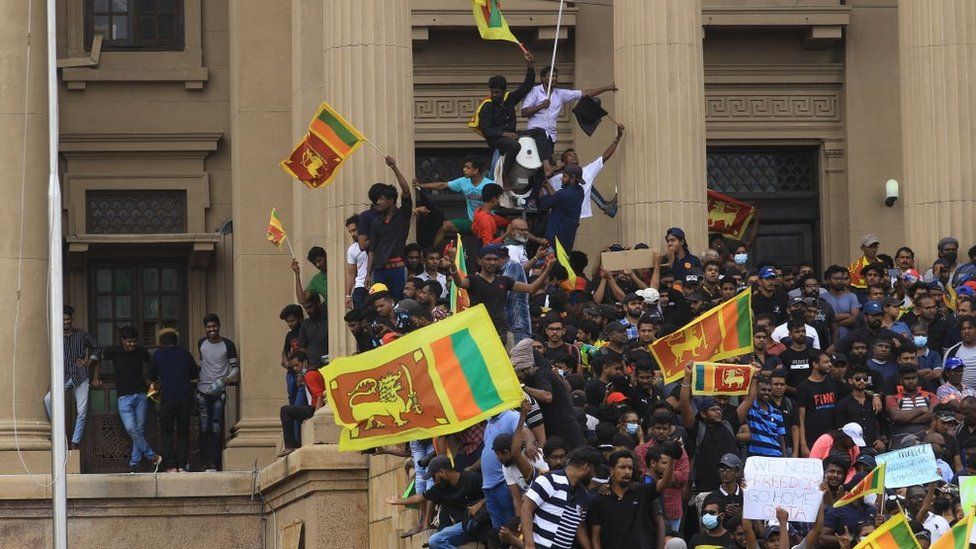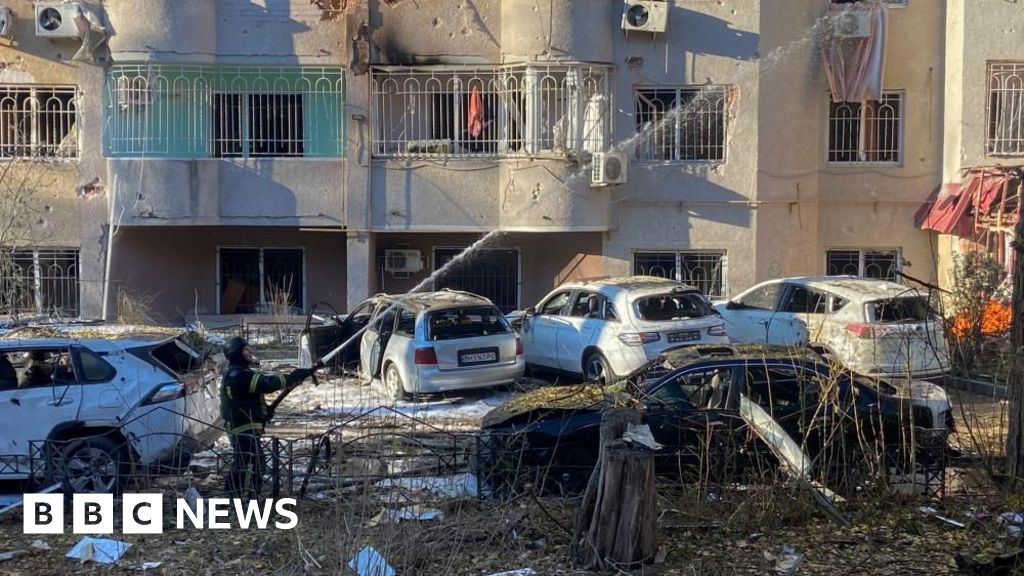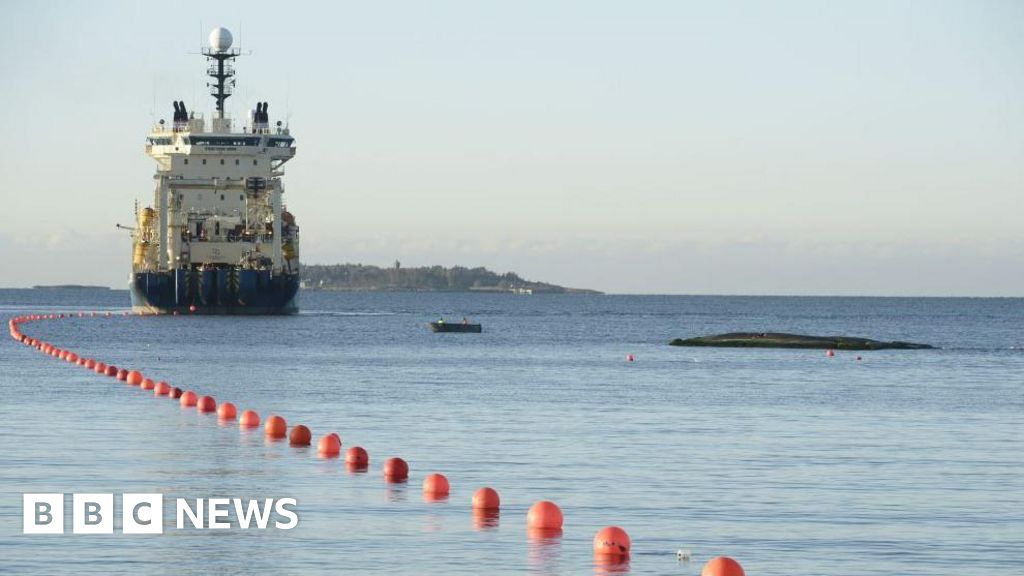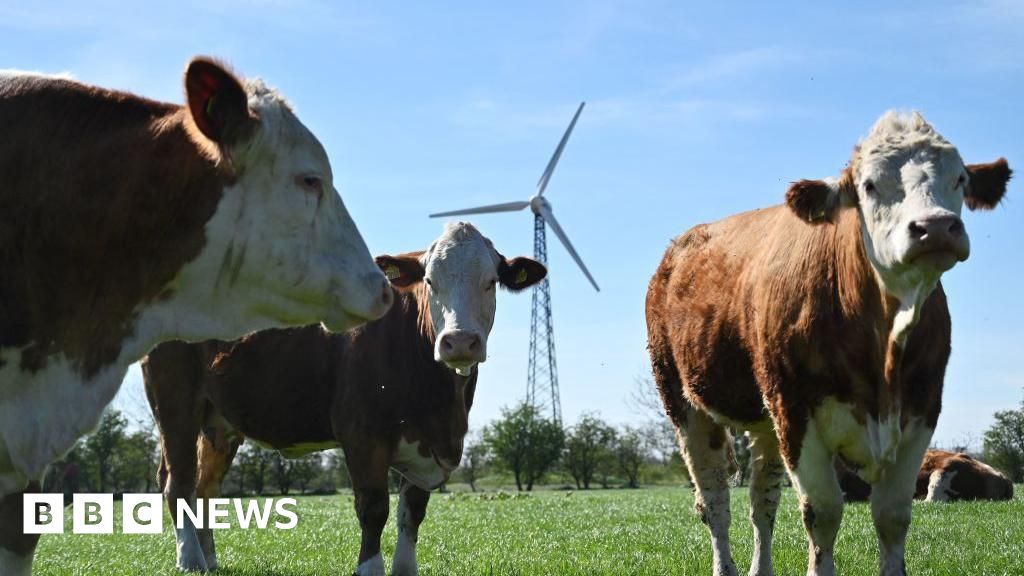ARTICLE AD BOX
By Simon Fraser
BBC News
 Image source, Getty Images
Image source, Getty Images
Protesters took over the president's official residence, chanting slogans and waving the national flag on Saturday
Sri Lankans are waiting for President Gotabaya Rajapaksa to meet a promise to resign after he fled mass protests over the island's worsening economic crisis.
He went into hiding after thousands stormed his palace on Saturday.
Mr Rajapaksa announced he would step down on Wednesday "to ensure a peaceful handover of power". His prime minister also indicated he would quit.
Protest leaders are demanding that both men go now along with the government - or face much bigger demonstrations.
Sri Lankans blame Mr Rajapaksa's administration for their worst economic crisis in decades. For months they have been struggling with daily power cuts and shortages of basics like fuel, food and medicines.
The departure of the president threatens a potential power vacuum in the country, which needs a functioning government to help start digging it out of financial ruin.
Politicians from other parties have been talking about forming a new unity government but there is no sign they are near agreement yet. It's also not clear if the public would accept what they come up with.
Image source, Getty Images
Image caption,Deeply unpopular President Gotabaya Rajapaksa has promised to resign following months of protest
Under the constitution, it's the prime minister who should act in the president's stead if the latter resigns. The prime minister is considered the president's deputy in parliament.
However, current PM Ranil Wickremesinghe is also deeply unpopular. Protesters set fire to his private residence on Saturday - he and his family were not inside - and he said he would resign to make way for a unity government, but gave no date.
That leaves the parliament's Speaker as the next most likely to step in as caretaker president, constitutional experts say. However Mahinda Yapa Abeywardena is an ally of the Rajapaksas. It is unclear whether the public would accept his authority.
Whoever does become acting president has 30 days to hold an election for a new president from among members of parliament. The winner of that vote could then see out the remainder of Mr Rajapaksa's term until late 2024.
Mr Rajapaksa's announcement that he would quit on Wednesday came via the Speaker. The president himself has not spoken publicly since fleeing Saturday's protests.
The current whereabouts of Mr Rajapaksa, an authoritarian leader whose family has ruled the island for most of the last two decades, are unclear. Defence sources say he was whisked away to safety during Saturday's protests.
On Monday, the main opposition leader Sajith Premadasa told the BBC he would be tilting for the presidency. But he also lacks public support and there is deep public suspicion of politicians in general.
The protest movement which has brought Sri Lanka to the brink of change also does not have an obvious contender for the country's leadership.
Sri Lanka: The basics
- Sri Lanka is an island nation off southern India: It won independence from British rule in 1948. Three ethnic groups - Sinhalese, Tamil and Muslim - make up 99% of the country's 22 million population.
- One family of brothers has dominated for years: Mahinda Rajapaksa became a hero among the majority Sinhalese in 2009 when his government defeated Tamil separatist rebels after years of bitter and bloody civil war. His brother Gotabaya, who was defence secretary at the time, is the current president but says he is standing down.
- Presidential powers: The president is the head of state, government and the military in Sri Lanka but does share a lot of executive responsibilities with the prime minister, who heads up the ruling party in parliament.
- Now an economic crisis has led to fury on the streets: Soaring inflation has meant some foods, medication and fuel are in short supply, there are rolling blackouts and ordinary people have taken to the streets in anger with many blaming the Rajapaksa family and their government for the situation.
Watch: Protesters storm Sri Lankan president's palace in Colombo, swam in the pool and set the PM's house on fire
Additional reporting by the BBC's Frances Mao

 2 years ago
26
2 years ago
26








 English (US)
English (US)